What is Biopower?
Biopower is a form of renewable energy that involves using organic materials, such as plants and animal waste, to generate power.
Types of Biopower
There are two main types of biopower:
- Biofuels: These are liquid or gaseous fuels derived from organic matter. Examples include ethanol, biodiesel, and biogas.
- Biomass Power: This involves burning organic materials, such as wood chips, agricultural residues, and waste, to produce heat and electricity.
Benefits of Biopower
There are several benefits to using biopower as an energy source:
- Renewable: Organic materials can be replenished, making biopower a sustainable energy option.
- Reduces greenhouse gas emissions: Burning organic materials releases carbon dioxide, but the plants used in biopower production absorb carbon dioxide during their growth, making the process carbon neutral.
- Supports agricultural and rural development: Biopower production can create new markets for agricultural products and provide economic opportunities in rural areas.
Challenges of Biopower
While biopower offers many benefits, there are also challenges associated with its production and use:
- Land use and competition with food production: Growing biofuel crops can compete with food crops for land and resources.
- Resource availability: The availability of organic materials for biopower production can vary depending on factors such as weather, crop yields, and waste generation.
- Technological and economic barriers: Developing and implementing biopower technologies can require significant investment and research.
Conclusion
Biopower is an important and promising renewable energy source that can help reduce our dependence on fossil fuels and mitigate the impacts of climate change. By understanding the types, benefits, and challenges of biopower, we can make informed decisions about its role in our energy future.
.◂Science Worksheets and Study Guides Fourth Grade. Rocks and minerals
Study Guide Rocks and minerals
Rocks and minerals  Activity Lesson
Activity Lesson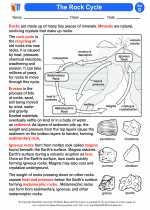 The Rock Cycle
The Rock Cycle  Worksheet/Answer key
Worksheet/Answer key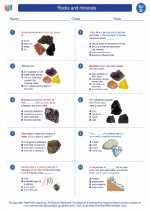 Rocks and minerals
Rocks and minerals  Worksheet/Answer key
Worksheet/Answer key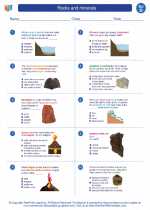 Rocks and minerals
Rocks and minerals  Worksheet/Answer key
Worksheet/Answer key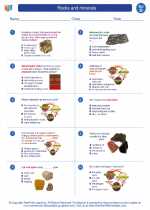 Rocks and minerals
Rocks and minerals  Worksheet/Answer key
Worksheet/Answer key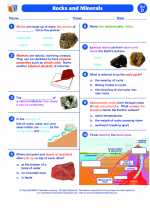 Rocks and Minerals
Rocks and Minerals  Vocabulary/Answer key
Vocabulary/Answer key Rocks and minerals
Rocks and minerals  Vocabulary/Answer key
Vocabulary/Answer key Rocks and minerals
Rocks and minerals  Vocabulary/Answer key
Vocabulary/Answer key Rocks and minerals
Rocks and minerals  Vocabulary/Answer key
Vocabulary/Answer key Rocks and minerals
Rocks and minerals 

 Activity Lesson
Activity Lesson
 Worksheet/Answer key
Worksheet/Answer key
 Worksheet/Answer key
Worksheet/Answer key
 Worksheet/Answer key
Worksheet/Answer key
 Worksheet/Answer key
Worksheet/Answer key
 Vocabulary/Answer key
Vocabulary/Answer key
 Vocabulary/Answer key
Vocabulary/Answer key
 Vocabulary/Answer key
Vocabulary/Answer key
 Vocabulary/Answer key
Vocabulary/Answer key

The resources above cover the following skills:
Concepts of Earth Science (SD1, SD2, SD3, SD4)
The student demonstrates an understanding of geochemical cycles by describing that most smaller rocks come from the breaking and weathering of larger rocks as part of the rock cycle.
The student demonstrates an understanding of geochemical cycles by recognizing the physical properties of water as they relate to the rock cycle.